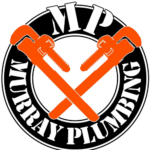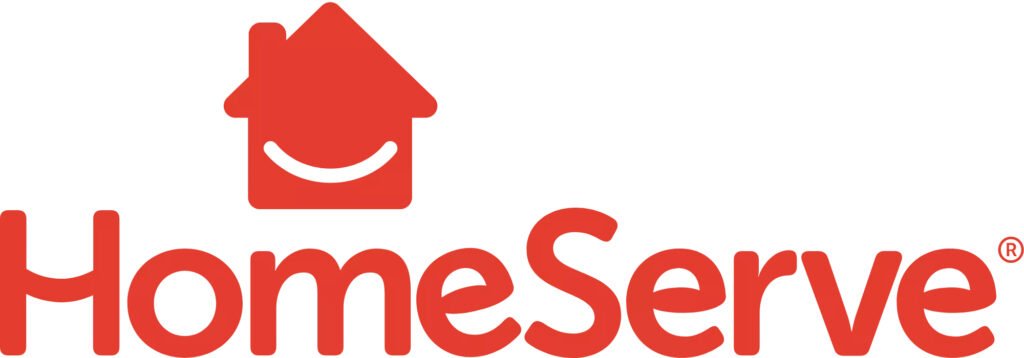Clogged sinks are a common household issue that can disrupt daily routines. Understanding how to effectively use household items can help unclog your sink and prevent future drain clogs. This article will explore common causes of clogged drains, effective household solutions for unclogging, when to call a plumber, and best practices for maintenance, ensuring your kitchen sink remains functional and efficient.
What are the Common Causes of Drain Clogs in Your Kitchen Sink?
How does grease contribute to clogged pipes?
One of the primary culprits behind clogged pipes in kitchen sinks is grease. When cooking, grease from oils and fats can accumulate in the drain pipes, leading to a sticky buildup over time. As grease cools, it solidifies and adheres to the sides of the pipes, narrowing the passageway through which water flows. This reduction in diameter can trap food particles and other debris, exacerbating the blockage. When grease is allowed to go down the drain without proper disposal, it can create significant drain issues, making it essential to avoid pouring fats down the sink.
What household items often lead to a clogged drain?
Several household items contribute to clogged drains, particularly when they are disposed of improperly. For instance, items such as eggshells, coffee grounds, and paper towels are commonly found in kitchen sinks. These materials do not break down easily and can accumulate over time, leading to a blockage in the drain. Additionally, hair and soap scum in bathroom sinks and shower drains can create stubborn clogs that hinder the flow of water. Understanding what can clog your pipes is crucial for maintaining a clear drain system.
How can food scraps clog your garbage disposal?
While garbage disposals are designed to handle food waste, certain types of scraps can still lead to clogged pipes. Fibrous vegetables, such as celery or artichokes, can wrap around the disposal’s blades, causing it to jam. Similarly, starchy foods like pasta or rice can expand and create a thick paste that clogs the drain pipe. It is vital to use your garbage disposal wisely and avoid putting problematic items down the drain to prevent unnecessary blockages.
How Can You Use Household Items to Unclog a Sink?
Which household items are effective for unclogging a drain?
Household items can be surprisingly effective in unclogging a sink. For instance, baking soda and vinegar create a powerful reaction that can dissolve minor clogs. When combined, these ingredients produce carbon dioxide, which helps to dislodge debris from the pipes. Another effective method involves using boiling water, which can help to melt away grease and clear any minor blockages. Additionally, a plunger can be an excellent tool for creating pressure that forces clogs out of the drain. Utilizing these common household items can often save you a call to a plumber.
Is boiling water a good solution for drain blockages?
Boiling water is one of the simplest and most effective solutions for minor drain blockages. By pouring boiling water down the sink, you can help dissolve any grease or soap buildup within the pipes. This method works particularly well for kitchen sinks, where grease accumulation is common. However, it is essential to ensure that your pipes can withstand high temperatures, as some older plumbing systems may be susceptible to damage. Regularly using boiling water can keep your drain pipes clear and functioning smoothly.
How can you use a plunger to unclog a sink?
Using a plunger to unclog a sink is a straightforward process that can yield effective results. First, ensure that there is enough water in the sink to cover the plunger’s rubber suction cup. This water provides the necessary pressure for the plunge. Position the plunger over the drain, creating a tight seal, and then plunge vigorously up and down for about 30 seconds. The pressure created can help dislodge the blockage, allowing water to flow freely down the drain. If the clog persists, you may need to try additional methods or consider contacting a plumber for further assistance.
When Should You Call a Plumber for a Clogged Drain?
What signs indicate a serious clog that needs professional help?
While many clogs can be resolved with household methods, certain signs indicate a more serious issue that requires professional help. If you notice that multiple drains in your home are clogged simultaneously, it may suggest a blockage further down the sewer line. Additionally, if you experience persistent backups, unpleasant odors, or gurgling noises in the drain, these could be indicators of a significant plumbing problem. In such cases, it is advisable to call a plumber to assess the situation and provide appropriate solutions.
How can a plumber help with stubborn blockages?
A plumber possesses the expertise and tools necessary to tackle stubborn blockages that household methods cannot resolve. They can employ specialized equipment, such as a drain snake or auger, to reach deep into the drain pipe and eliminate the clog. Moreover, they can inspect the plumbing system to identify underlying issues, such as damaged pipes or tree root intrusions, which may be contributing to frequent clogs. Employing a professional ensures that your plumbing is restored to optimal function, preventing future headaches.
What are the costs associated with hiring a plumber for drain issues?
The costs associated with hiring a plumber for drain issues can vary based on several factors, including the severity of the blockage, the location, and the specific services required. On average, homeowners can expect to pay between $100 and $300 for a standard service call. More complex issues, such as extensive root intrusion or pipe repairs, may incur higher costs. It is prudent to obtain estimates from multiple plumbers to ensure competitive pricing and to inquire about any additional fees that may arise during the process.
What Are the Best Practices to Prevent Future Drain Clogs?
How can regular maintenance keep your drain pipes clear?
Regular maintenance is key to preventing future drain clogs. Simple practices such as flushing your drains with hot water weekly can help to dissolve grease and soap buildup before it solidifies. Additionally, using a mixture of baking soda and vinegar monthly can maintain a clear drain by addressing small clogs before they evolve into significant issues. Keeping a maintenance schedule helps ensure your plumbing system remains in optimal condition, reducing the likelihood of calling a plumber for urgent repairs. Click here for more information.
What items should you avoid putting down the kitchen sink?
To maintain a healthy plumbing system, it is crucial to be mindful of what goes down the kitchen sink. Certain items should never be disposed of in the sink, including grease, fibrous vegetables, eggshells, coffee grounds, and starchy foods. Additionally, avoid flushing non-biodegradable items, like paper towels and sanitary products, down the bathroom sink or toilet. By being conscious of what you dispose of, you can effectively reduce the risk of clogs in your plumbing system.
How can using a strainer reduce the risk of clogs?
Using a strainer is a simple yet effective strategy to reduce the risk of clogs in your sink. A strainer catches food particles and debris, preventing them from entering the drain and causing blockages. Regularly cleaning the strainer helps maintain optimal water flow and can significantly decrease the chances of a clogged sink. By incorporating a strainer into your kitchen routine, you contribute to the longevity of your plumbing system and reduce the need for frequent unclogging efforts.
How Do You Properly Use a Drain Snake or Auger?
When is it appropriate to snake the drain?
Snaking the drain is appropriate when conventional methods of unclogging have failed and a persistent blockage remains. If you encounter a clog that does not respond to boiling water, baking soda and vinegar, or a plunger, it may be time to consider using a drain snake. This tool is particularly useful for clogs located deeper within the plumbing system, making it an essential option for effectively addressing stubborn blockages.
What steps should you follow to use an auger effectively?
Using an auger involves specific steps to ensure efficacy and safety. First, insert the auger into the drain until you encounter resistance, indicating a clog. Rotate the handle to engage the clog and push through the blockage. Once the auger has penetrated the clog, carefully retract it while continuing to rotate. This motion helps pull the debris out of the pipe. After using the auger, flush the drain with hot water to clear any remaining particles. Proper technique is crucial to prevent damage to your pipes while effectively clearing the blockage.
Are there any risks associated with using a drain snake?
While a drain snake can be an effective tool for unclogging pipes, there are risks associated with its use. Improper handling can lead to damage to the pipes, especially if excessive force is applied. Additionally, if the auger becomes lodged in the drain, it can create further complications that may require professional attention. Therefore, it is advisable to follow instructions carefully and, if in doubt, consult with a plumber to ensure that you are using the tool safely and effectively.
How Murray Plumbing Inc Can Help with Household Solutions to Unclog Sinks and Prevent Drain Clogs
At Murray Plumbing Inc, we offer expert solutions to unclog a drain and prevent future drain clogs in your household. Utilizing professional drain cleaner techniques, we address issues such as a clogged kitchen sink or sink drain obstructions caused by items like cat litter or food down the drain.
While there’s an old wives’ tale that suggests using soda and vinegar to unclog a drain, it is essential to understand that baking soda down the drain should be approached with caution. For effective results, we advise homeowners to cover the drain and consult professionals before attempting DIY methods.
To avoid potential plumbing issues, remember the things you should never allow in your drains, including peel and other food waste. If you suspect a clog, contact us today to verify your email and ensure your plumbing remains in optimal condition.
For those with septic systems, it is crucial to maintain the p trap effectively to prevent sewage backflow. Check your inbox for our privacy policy and tips on maintaining clear drains, and rest assured we’re here to assist you with all your plumbing needs.



